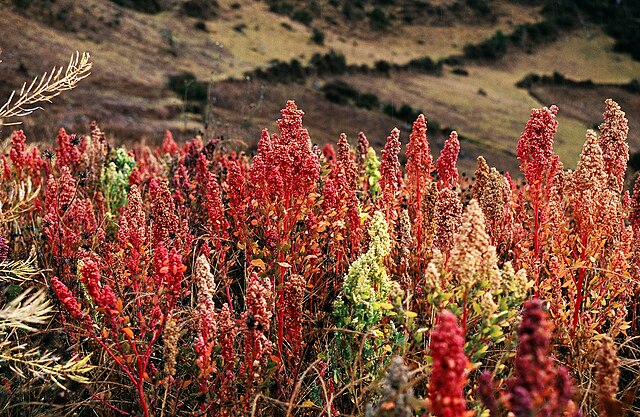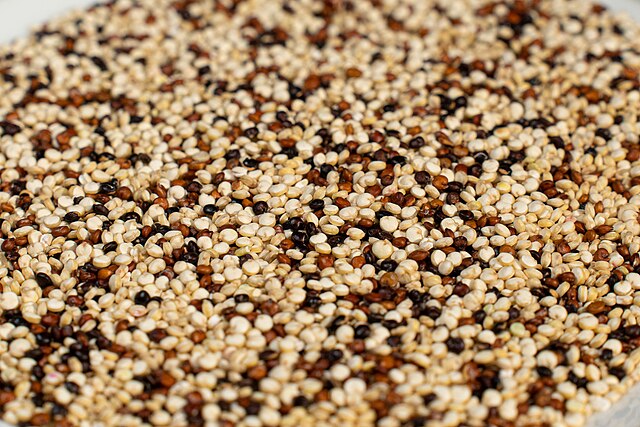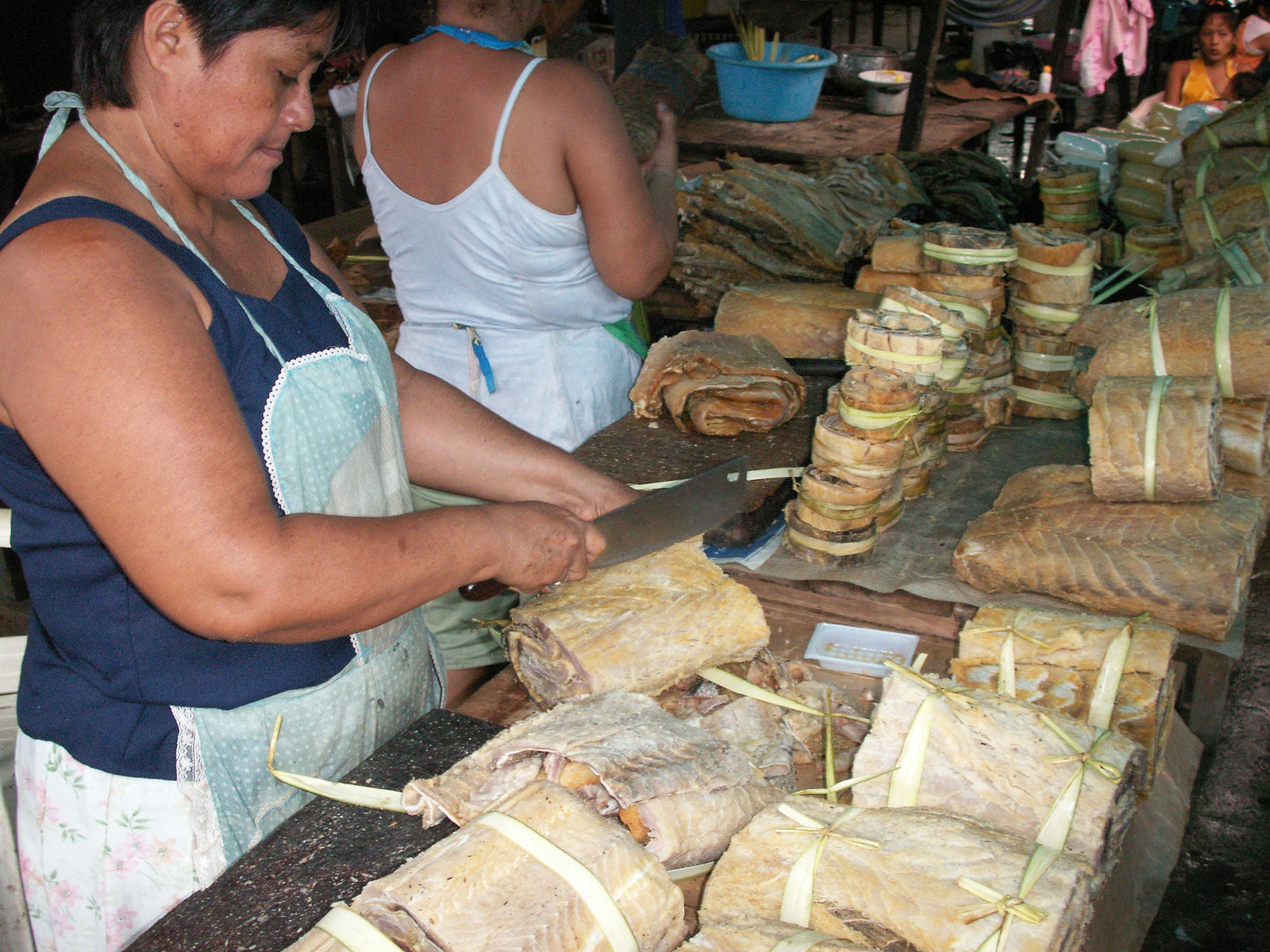
There are thousands of different proteins. Wheat gluten, maize gluten, zein, and albumin are some examples. Any food or living organism contains at least one protein. Eggs and seeds may have one to a few, while more complex structures like humans contain many more proteins.
This post is part of a series covering the main nutrients in our food. We will look at what carbs, proteins, fats, fiber, minerals, and vitamins do in our bodies to understand why we need them. This post is dedicated to proteins.
22 Proteins Important for Humans
Proteins are primarily composed of carbon, hydrogen, oxygen, and nitrogen. Many contain sulfur, and some also contain phosphorus. Like carbs, proteins are made up of smaller compounds called amino acids. There are about 500 known amino acids, but our bodies use 22: Alanine, Arginine, Asparagine, Aspartic Acid, Cysteine, Cystine, Glutamic Acid, Glutamine, Glycine, Histidine, Hydroxyproline, Isoleucine, Leucine, Lysine, Methionine, Phenylalanine, Proline, Serine, Threonine, Tyrosine, Tryptophan, and Valine.
Essential Amino Acids
Some of the 22 amino acids that our bodies use cannot be produced by the body itself, so we need to obtain them through our diet. These are: Lysine, Leucine, Isoleucine, Phenylalanine, Methionine, Valine, Threonine, Tryptophan, and Histidine.
Many foods, especially those of animal origin, contain all of these essentials or even all of the 22 amino acids our bodies use. However, not all plant-based foods contain all nine essential ones, and this is where the exaggerated vegan protein panic comes from. When following a completely plant-based diet, it’s important to eat a variety of fresh veggies, fruits, pulses, and grains to ensure you get all the amino acids and nutrients you need. In fact, this applies to everyone, not just vegans and vegetarians—everyone benefits from a diverse diet.
Quinoa, soy, chia seeds, and animal-based foods are what we call complete proteins because they contain all nine essential amino acids.


Quinoa is native to the Andean region of South America: Peru, Bolivia, and Ecuador. It has been cultivated for thousands of years, dating back to the time of the Inca civilization, where it was considered a sacred “superfood.” Quinoa thrives in the high-altitude regions of the Andes and is well-adapted to the harsh growing conditions of this area. Picture by Maurice Chédel on WikiCommons.
3 color quinoa, ready to be cooked. Picture by Vladimirf7 on WikiCommons.
Proteins Are Building Blocks
The body uses amino acids to build its own human proteins, which are the building blocks of our tissues. We need proteins for the growth and repair of our body's cells and tissues.
They are also necessary for synthesizing enzymes, plasma proteins, certain hormones, and neurotransmitters. For example, tyrosine is needed to create dopamine, our motivational neurotransmitter. Insulin, which regulates blood sugar levels, is also made from protein.
Immune System Support
Proteins form antibodies, which are crucial for the immune system. They identify foreign substances in our bodies, like pathogens, and mark them so that other immune system components can easily find and destroy them.
Transport and Storage Proteins
Many proteins in our bodies are involved in transport. For example, hemoglobin is a protein found in red blood cells that transports oxygen from the lungs to the rest of the body. Storage proteins, like ferritin, bind to other substances and store them. Ferritin, for instance, stores iron in the liver.
Energy Production
Proteins can also be converted into energy when needed, particularly if there isn’t enough glucose from carbohydrates. Enzymes (which are proteins) convert proteins into glucose, which can then be used to generate ATP, our energy molecule. You can read more about ATP in this post.
What’s the Best Protein?
For our bodies, it is most efficient to receive proteins that contain essential amino acids in the ratios we need. This minimizes the energy spent processing, converting, and rearranging amino acids to create human proteins. This is known as the biological value of protein—the higher it is, the "better" the protein.
Egg protein has a very high biological value for humans. However, it’s important not to overconsume eggs, as they are also high in cholesterol and aren’t the healthiest food overall. It’s more balanced to get your protein from a variety of sources, including pulses and vegetables, and to avoid consuming excessive protein.


This is one of the largest fish in the Amazon region where I live: Paiche (Aparaima Gigas). It is highly regarded for its mild flavor, low fat content, and high protein concentration.
On average, 100 grams of cooked Paiche provides approximately 20–25 grams of protein, making it a high-protein food. You can buy it at many markets, dried and salted, like you can see in the picture of Dirk Meyer (WikiCommons).
Why Shouldn’t We Eat a Lot of Protein?
We need protein, but the body has no use for excess amounts. Excess protein needs to be stripped of its nitrogen parts, and the liver converts this into urea, which is excreted by the kidneys in urine. This process consumes a considerable amount of energy, which could be used elsewhere if we didn’t consume so much protein. Once nitrogen is removed, the remaining part of the protein can be used for energy, and if that energy isn’t needed, it gets converted to glycogen or stored as fat.
If excess protein isn't useful for the body, it might make you wonder: why do athletes eat so much protein? The answer lies in protein's role in muscle repair. When we engage in strenuous activities like resistance training or intense cardio, our muscles experience tiny tears. This is part of the natural process of building strength, but effective recovery requires protein. Consuming adequate protein after workouts can significantly enhance muscle protein synthesis, promoting recovery and growth.
Difficult to Digest
Some proteins, such as wheat gluten, can be difficult to digest. If your digestive system is not functioning optimally, wheat protein may not be properly digested. Improperly digested particles can pass from the small intestine into the large intestine, where they may adhere to the intestinal wall. Bacteria can then begin to feast on them, leading to putrefactive processes that produce foul or even toxic substances. These can pass from the large intestine into the bloodstream, overwhelming the liver.
Proteins, in Short
Proteins are essential as they are the building blocks of tissues, hormones, neurotransmitters, enzymes, and antibodies. They also transport and store substances our bodies need. I advise you to get your proteins from a diverse range of foods and to limit your intake of animal protein, wheat, and rye. Large amounts of these foods do not support our health as effectively as the proteins from pulses and fresh vegetables do.
Cover picture
Yup, that’s me! Before I moved to the jungle, I greatly enjoyed my weekly pole dance classes at Deep Dance Pole Dance Studio. It’s a beautiful sport that helps you develop not only confidence but also balance, flexibility, and an incredible amount of mental and physical strength! Despite our need to build muscle, we weren’t really into protein shakes, though I know some of them are very good in coffee……enjoyed in moderation… 😉
Sources
https://www.ncbi.nlm.nih.gov/books/NBK234922/
https://www.ncbi.nlm.nih.gov/medgen/269029
https://www.ncbi.nlm.nih.gov/sites/myncbi/tracy.anthony.1/bibliography/40896220/public/?sort=date&direction=descending
Congratulations @mirjamsvideos! You have completed the following achievement on the Hive blockchain And have been rewarded with New badge(s)
Your next target is to reach 200 posts.
You can view your badges on your board and compare yourself to others in the Ranking
If you no longer want to receive notifications, reply to this comment with the word
STOP